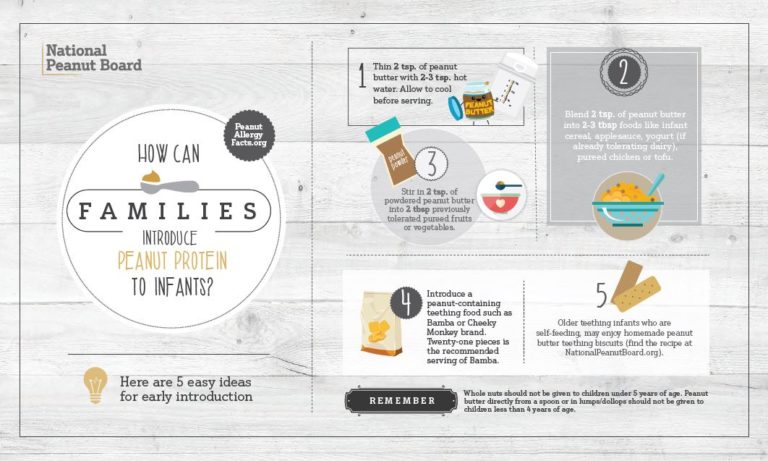
Peanut Allergies
PEANUT ALLERGY INFO
Only a very small fraction of people suffer from peanut allergies. The Food Allergy and Anaphylaxis Network state that 0.6% of people in the United States have a peanut allergy, and that up to 20% of them are likely to outgrow it.
There are currently many promising new research efforts studying ways to successfully manage peanut allergies. Also, by working together, doctors, parents and educators have been very successful in managing exposure to peanuts in schools and public settings.
One of the most significant advances in food allergy occurred with the release of the results from The Learning Early About Peanut Allergy (LEAP) study in early 2015. Led by Dr. Gideon Lack of King’s College in London, LEAP showed a reduction in the development of peanut allergies of up to 86 percent in children who were exposed to peanut protein early.
The results led experts at the National Institute of Allergy and Infectious Disease (NIAID) to rethink how we approach food allergy prevention. NIAID’s new guidelines now recommend introducing peanut protein to infants as early as 4-6 months of age, depending on risk factors – including family history and signs of eczema.
What’s new about these guidelines is that they recommend the early introduction of peanut protein in infants between 4-6 months of age depending on risk (low, medium or high) to prevent peanut allergy. They also provide ways to simply introduce peanut to babies (through thinned peanut butter, peanut puffs or powdered peanut butter) and recommendations for how frequently infants who are at-risk for peanut allergy should eat peanut foods (at least 3 times per week). If a baby isn’t at risk for peanut allergy, parents can offer peanut foods as often as they would like.

The NIAID guidelines also provide parents with simple ways to introduce peanut protein to babies and recommendations for how frequently infants who are at-risk for peanut allergy should eat peanut foods (at least 3 times per week). If a baby isn’t at risk for peanut allergy, parents can offer peanut foods as often as they would like.
More information about peanut allergies and early introduction can be found at peanutallergyfacts.org